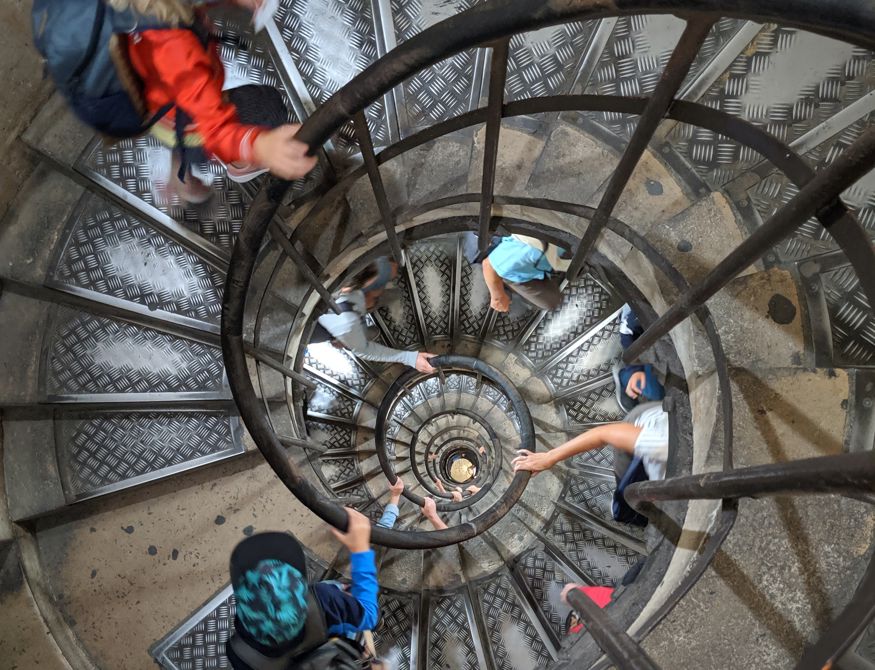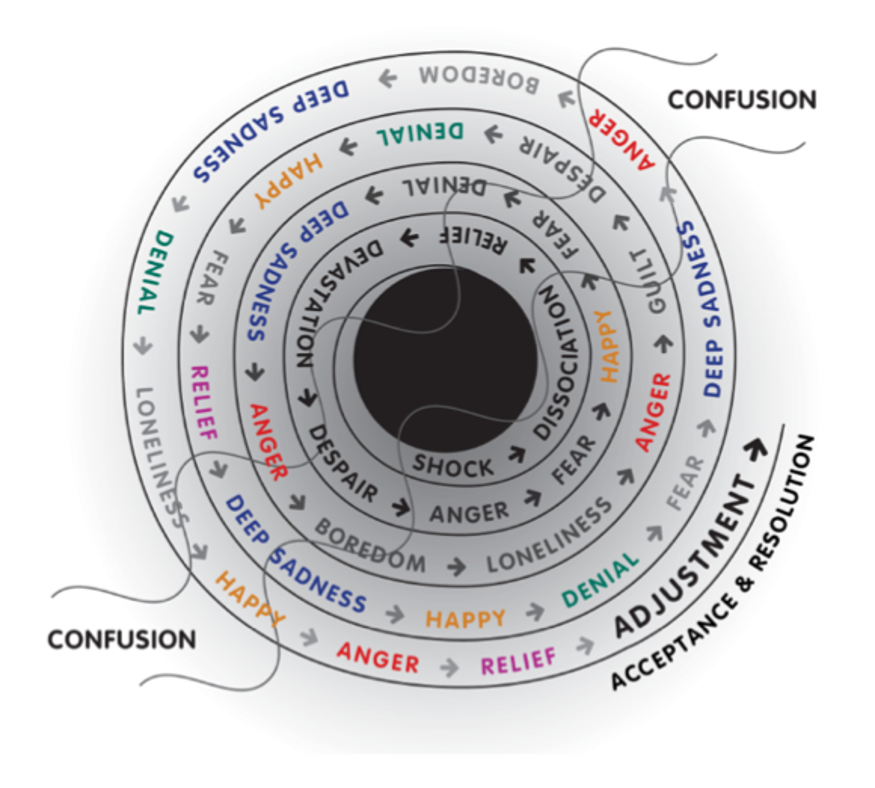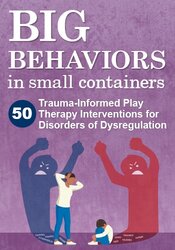Enrol in an online course today for flexible, self-paced learning—no fixed schedule required. Plus, enjoy lifetime access to course materials for convenient revisiting.
The Upward Spiral Of Grief: Helping Children Navigate Bereavement

To address the needs of bereaved children, I authored Grief Book, which explores the journey of trauma and grief following the death of a loved one, with a particular focus on parents and siblings. My aim was not only to encourage open conversations about death and dying but also to provide tools for navigating the ‘new normal’ of grief.
The book draws upon the voices of thousands of bereaved children and families whom I’ve had the privilege of working with professionally through one-on-one counselling, group activities, family events, residential camps, Bad Time Rhymes Poetry, and a helpline I established for the charity I founded two decades ago, Grief Encounter.
The success of the Upward Spiral of Grief model, outlined in the book, lies in its powerful messages about the grieving processes of young people and adults. It aims to re-frame our approach to grief, building upon existing theories. It emphasises an emotional focus, the importance of trauma-informed research and current neuroscientific theories.
Rather than solely focusing on acceptance and resolution goals, this model foregrounds adjustment. It speaks to the traumatic impact of untimely death, symbolised as a black hole that gradually diffuses, allowing colour to slowly return. With support and time, restoration of limited access to higher-order cognitive functions facilitates the healing of cognitive, emotional, and behavioural ruptures.

(The Upward Spiral of Grief, from Grief Book, 2021, by Dr Shelley Gilbert)
To illustrate the vitality of the model, I like to draw upon examples from my doctoral research. The spiral becomes a tangible representation of the grieving experience for young individuals.
For Melinda, the realisation that grief is non-linear and upward spiralling, rather than a circular or downward trajectory, resonated with her lived experience and offered palpable relief from the expectation of swift recovery.
For Belinda, who felt her thoughts, feelings and behaviours were split following her parents’ deaths, the model helped facilitate the distinction between the objective experience of loss and the subjective understanding of it. Using the young person’s spiral to identify her ‘now’ and ‘then’ positions, she felt more confident to begin the process to understand and link her inner feelings.
For Penny, the empathic interactive model was a gateway to build rapport and delve into deeper, darker emotions and traumatic experiences.
For Colin, the spiral form brought recognition, facilitating insight into his emotional and behavioural extremes, and also using it as a tool for control and mastery.
For Jennifer, the black hole symbolised her feelings of entrapment in darkness, with the spiral offering a pathway toward the possibility of light and hope amid despair.
For Matt, the visual, interactive nature of the spiral allowed for creativity, humour and fun, as he enjoyed racing around the spiral with colouring crayons, with this process then opening further conversations about missing Mum’s cooking and cleaning and the trauma of bearing witness to his mother’s death.
The Upward Spiral of Grief also underscores that grief is a complex process filled with confusion and potential pitfalls. This process is more about constructive adjustment and filling the void than stages or tasks or merely letting go. Recognising warning signs of being stuck or operating at emotional extremes is crucial. With support and time, the limited access to the higher-order functions of the brain can be restored, allowing healing and promoting learning, play, exploration and creativity.

















